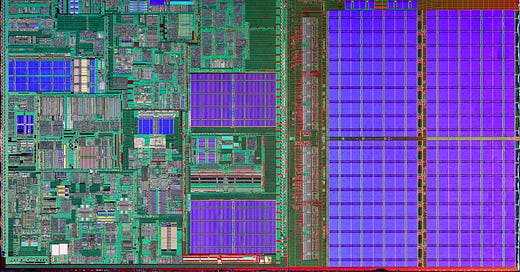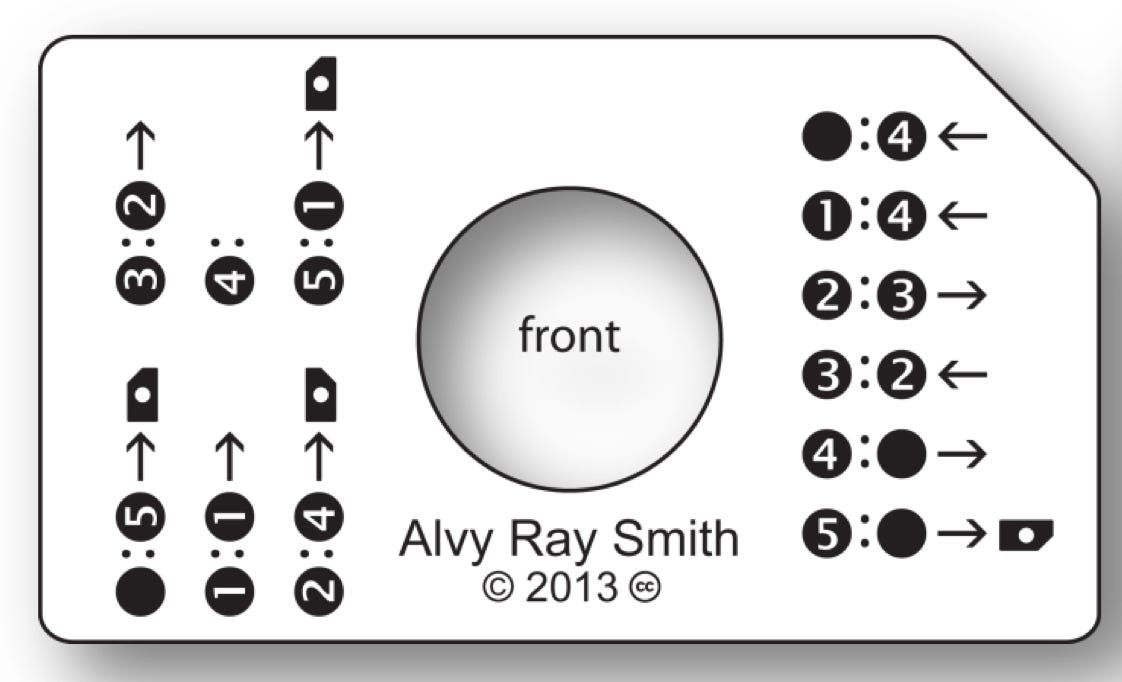Chip Letter Links No. 22 : Intel Gallatin, Nvidia, Minimal CPU, Gary Kildall, Richard Feynman, John von Neumann, Twitter, Quake and more
Great links, images and reading for 13 August 2023
Hi everyone and thanks for subscribing. This is one of our regular series of posts with links, images and articles of interest, inspired by Adam Tooze’s excellent Chartbook.
Each edition starts with a beautiful die image. This week it’s a Intel Gallatin die, courtesy of Martijn Boer.
Why Nvidia Keeps Winning
Nvidia remains the semiconductor company of the day, with its dominance of the GPUs that power most leading edge work on AI and particularly ‘Large Language Models’.
Interesting interview (podcast and transcription) with Doug O’Laughlin of
on discussing Nvidia and why it has been so successful.A stimulating discussion on the topic on Hacker News too.
Nvidia got lucky because every quarterly all-hands meeting Jensen repeated that he kept on investing in CUDA and adding more silicon to the GPUs than strictly needed because, one day, an application would come along that would make it all worth it.
A Minimal CPU
How small can a computer be? MCPU sets out to explore the boundaries. From the GitHub repo.
MCPU - Minimal CPU for a 32 Macrocell CPLD
MCPU is a minimal cpu aimed to fit into a 32 Macrocell CPLD - one of the smallest available programmable logic devices. While this CPU is not powerful enough for real world applications it has proven itself as a valuable educational tool. The source code is just a single page and easily understood. Both VHDL and Verilog versions are supplied. The package comes with assembler, emulator and extensive documentation.
This short pdf gives a lot more information on the design.
Here is also an assembler and emulator for MCPU in only a few lines of Python.
Gary Kildall
The modern personal computer industry owes a lot to Gary Kildall.
As the founder of Digital Research his CP/M powered many of the business computers of the 8-bit era. Microsoft’s
I was fascinated by his unpublished draft book, now hosted on the Computer History Museum’s website.
Kildall became a host on The Computer Chronicles TV show for many years. After his early death the program produced a special edition to commemorate his life.
Feynman on Computer Science
Richard Feynman:
I don’t believe in Computer Science
He still wrote a great book on computation!
Business Card Universal Turing Machine
You have in your hands a simple device that can compute anything whatsoever that's computable. It's a realization of one of the world's great ideas-Alan Turing's universal computer.
This piece of computer hardware is a business card with a hole in the center and one corner cut off, as depicted here.
After the break: Quake on the Apple Watch, an operating system in 512 bytes of x86 machine code, von Neumann’s first program analysed by Donald Knuth and fitting Twitter onto one machine!
The rest of this edition is for paid subscribers. If you value The Chip Letter, then please consider becoming a paid subscriber. You’ll get additional weekly content, learn more and help keep this newsletter going!






